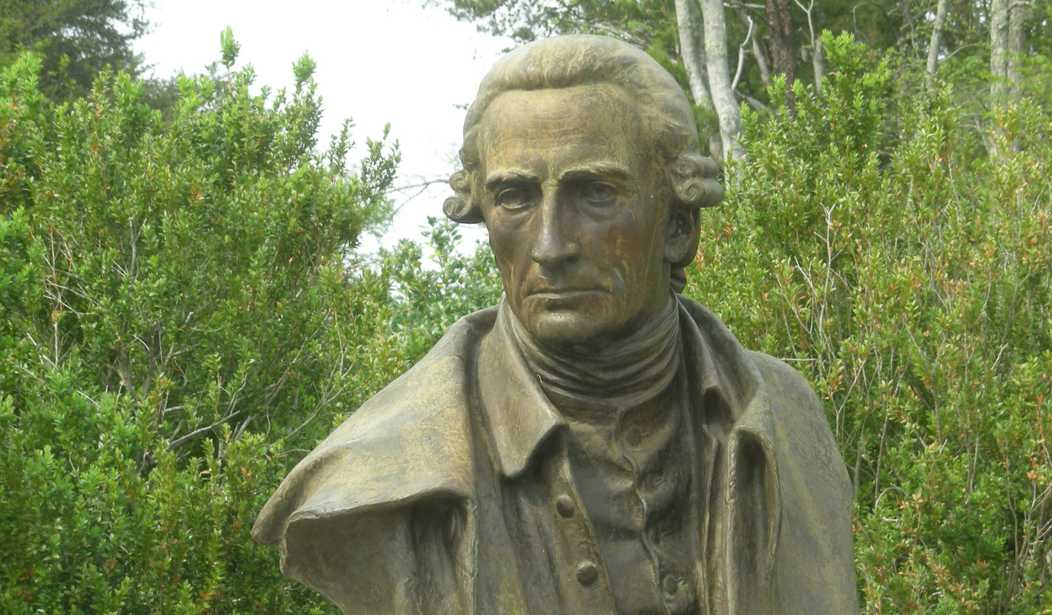There are, I fancy, few more avid admirers of James Madison than I. But reading through Bernard Bailyn’s extraordinarily brilliant The Ideological Origins of the American Revolution, I have to admit that the anti-Federalists who opposed those, like the temporary allies Madison and Alexander Hamilton, who argued for ratification of the U.S. Constitution in 1787, had a point.
Their basic argument was that the Constitution as framed by the Federalists would subordinate the rights of the individual states and impose exactly the same sort of tyranny that the colonists had rebelled against in 1776. “Examination of the Constitution revealed,” Bailyn noted, “a taxing power in the hands of the proposed national government that would prove to be as unqualified by the restraints of the states as Parliament’s had been by the colonial assemblies.”
Here’s Patrick (“Give men liberty or give me death”) Henry on what would happen should the Constitution be adopted:
the Senate would live in splendor and a “great and mighty President” would “be supported in extravagant magnificence, so that the whole of our property may be taken by this American government, by laying what taxes they please, giving themselves what salaries they please, and suspending our laws at their pleasure.”
The anti-Federalist “Brutus” (probably Melancton Smith) dilated further on the economic calamity that awaited. The government’s power to “borrow money on the credit of the United States,” he warned, meant that
the Congress may mortgage any or all the revenues of the union . . . [and] may borrow of foreign nations a principal sum, the interest of which will be equal to the annual revenues of the country. By this means, they may create a national debt so large as to exceed the ability of the country ever to sink. I can scarcely contemplate a greater calamity that could befal this country than to be loaded with a debt exceeding their ability ever to discharge.
It’s a pity that “Brutus” couldn’t meet Barack Obama. They would have had a lot to talk about.
“Brutus” saw more clearly than our master in Washington that economic profligacy entails governmental overreach. The national government, he wrote,
will wait upon the ladies at their toilett, and will not leave them in any of their domestic concerns; it will accompany them to the ball, the play, and the assembly; it will go with them when they visit, and will, on all occasions, sit beside them in their carriages, nor will it desert them even at church; it will enter the house of every gentleman, watch over his cellar, wait upon his cook in the kitchen, follow the servants into the parlour, preside over the table, and note down all he eats or drinks; it will attend him to his bed-chamber, and watch him while he sleeps; it will take cognizance of the professional man in his office or his study; it will watch the merchant in the counting-house or in his store; it will follow the mechanic to his shop and in his work, and will haunt him in his family and in his bed; it will be a constant companion of the industrious farmer in all his labour, it will be with him in the house and in the field, observe the toil of his hands and the sweat of his brow; it will penetrate into the most obscure cottage; and finally, it will light upon the head of every person in the United States. To all these different classes of people and in all these circumstances in which it will attend them, the language in which it will address them will be, GIVE! GIVE!
The Federalists had answers to these concerns, but it is not at all clear that our squalid masters in Washington are paying them any heed.








Join the conversation as a VIP Member